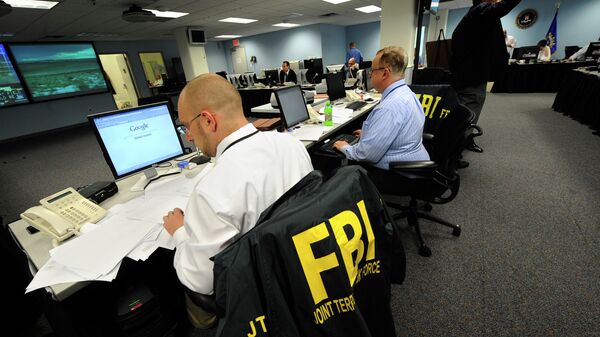In 2015, the FBI issued 12,870 subpoenas, but last year that figure fell about 5 percent to 12,150 requests, according to the Office of the Director of National Intelligence. The number of subpoenas peaked in 2004, when a whopping 56,507 orders were requested to gather phone, email and IP address data.
The report did not point to concrete reasons for the decline, though the number of subpoenas has gradually fallen over the last 12 years. The practice has come under increased public scrutiny since NSA contractor-turned-whistleblower Edward Snowden revealed the extent of the US government’s domestic spying apparatus, and technology companies have become increasingly willing to fight the orders as customers demand greater protections.
The secret warrants to search the information of US citizens do not require judicial sanction, though collection of the actual contents of a phone call or an particular email exchange does require court approval. But that hardly decreases how creepy this “security” tool is: technology companies like Google, Facebook, Twitter or Apple that receive these government requests to hand over data are legally prohibited from telling individuals that they are under government investigation.
Let’s not forget, the Fourth Amendment of the US Bill of Rights states clearly, “the right of people to be secure in their persons, houses, papers, and effects, against unreasonable searches and seizures, shall not be violated,” and continues, “no warrants shall issue, but upon probable cause supported by oath or affirmation, and particularly describing the place to be searched, and the persons or things to be seized.” But somehow, some government agencies manage to operate above the law when it comes to basic constitutional protections.
The requests in question operate under the obscure guise of “administrative” subpoenas. These “would be issued without any accountability,” according to the ACLU, “unless challenged by the recipient.” The subpoenas’ gag orders make short work of that possibility.
In a few cases, tech companies have been able to fend off indefinite gag orders. Adobe won a case ruling that declared one such order “manifestly goes further than necessary to protect the government’s interest.” Microsoft and Twitter have filed similar suits. Last year, Microsoft alleged that the Justice Department “exploited the transition to cloud computing as a means of expanding its power to conduct secret investigations.”
What’s more, technology users don’t have to commit a legal infraction for the intelligence community to track them. “The subpoenas could investigate lawful activity,” the ACLU notes. “[T]hey are not for investigations of terrorism,” but rather to “protect against” terrorism. And the type of material that can fall under the scope of an intelligence investigation to “protect against” such threats or other national security concerns is “almost limitless.”
For instance, civil rights leader Dr. Martin Luther King, Jr., who advocated nonviolent protest, was placed under audio and physical FBI surveillance, “which culminated into an attempt to blackmail Dr. King into committing suicide,” according to a 2014 paper by Chris Chasin in the Journal of Law, Technology & Policy. And Occupy Wall Street protesters “have faced economic reprisal, loss of employment, and the threat of physical coercion.” These activists weren’t trying to commit acts of terror or jihad, but to challenge the corporate grip on their country through demonstrations and largely peaceful occupations.



